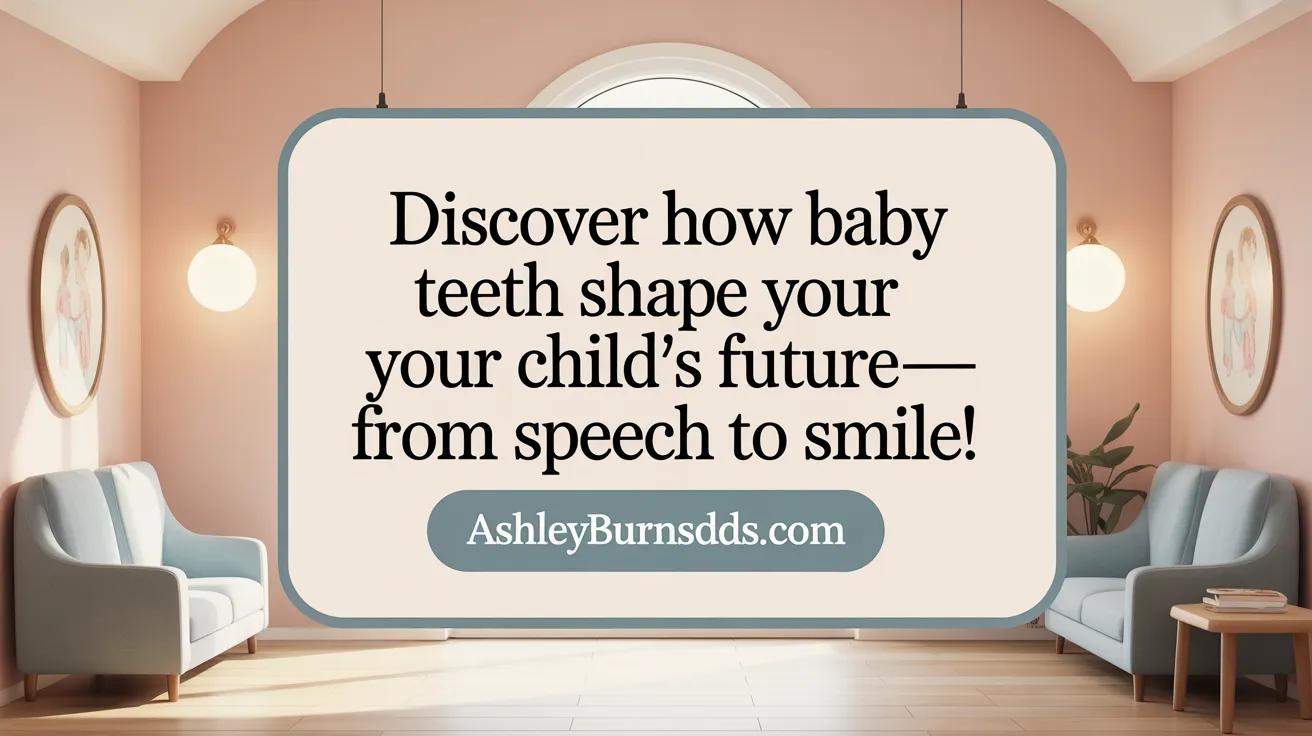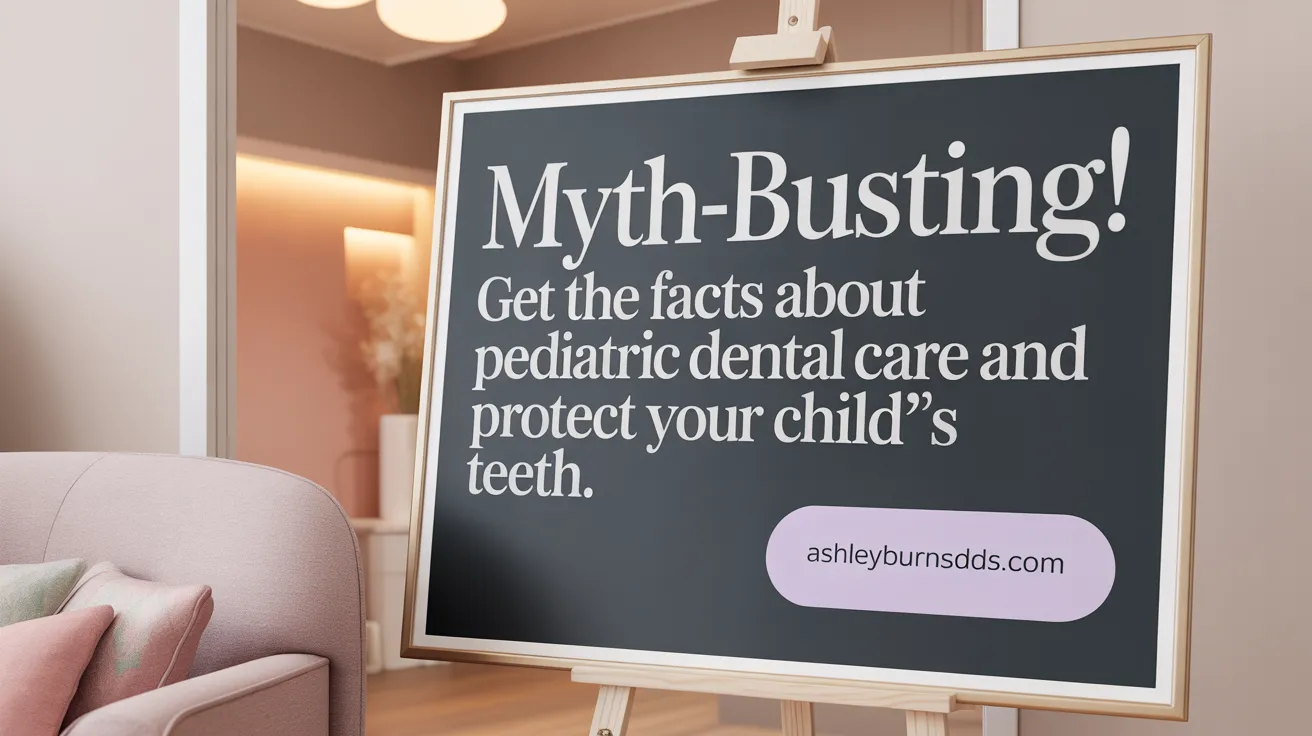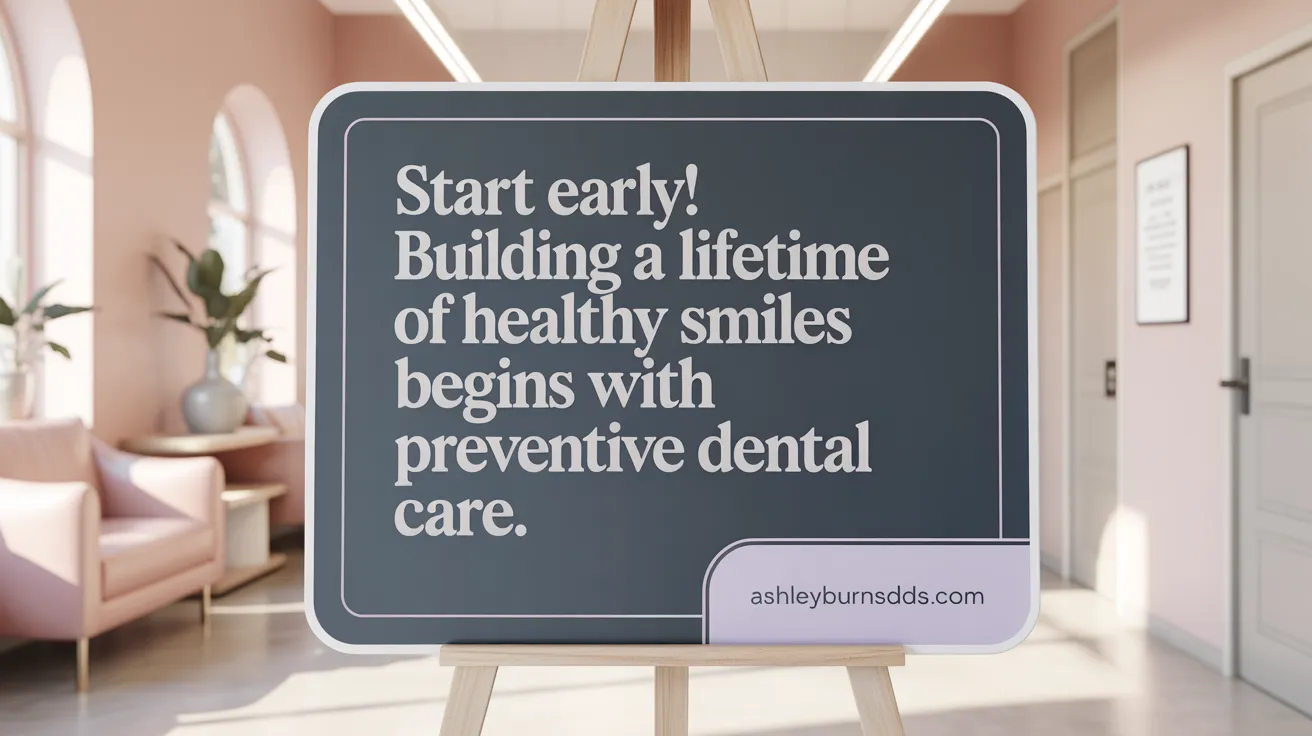Why Baby Teeth Are More Than Just a Phase
Baby teeth often get overlooked because they eventually fall out, but these early teeth play crucial roles in a child's overall health, development, and future dental well-being. This article explores the importance of primary teeth, debunks common myths surrounding pediatric dental care, and highlights why early preventive practices matter. Parents and caregivers will find valuable insights to ensure children's oral health is nurtured from the earliest stages.
The Essential Functions of Baby Teeth in Child Development

Why are baby teeth important for children's health and development?
Baby teeth serve multiple vital roles in a child's early years. They enable proper chewing, which is essential for nutritious eating and effective digestion. Additionally, baby teeth support speech development by helping children form sounds correctly, contributing to clear language skills (Importance of Baby Teeth, Baby Teeth and Speech Development).
Furthermore, baby teeth act as natural guides for the eruption and alignment of permanent teeth. By maintaining space and proper positioning, they prevent crowding and misalignments that could require orthodontic treatment later (Baby Teeth as Placeholders, Preventing Teeth Crowding). Beyond oral functions, healthy baby teeth influence overall facial structure and jaw development, supporting balanced facial aesthetics (Facial Structure Development, Jaw Development and Baby Teeth).
Neglecting baby teeth can lead to pain, infections, and developmental issues (Pain and Swelling from Cavities, Infections from Baby Teeth Cavities). Staying vigilant about dental hygiene and regular dental visits from an early age helps ensure their health, ultimately supporting healthy growth and future oral health (First Dental Visit by Age One, Regular Pediatric Dental Checkups).
The Impact and Prevention of Premature Loss of Baby Teeth
 Losing baby teeth too early can lead to significant dental development issues. When primary teeth are lost prematurely, the neighboring teeth may drift into the gap, which can cause misalignment and crowding of the permanent teeth that are yet to erupt. This shifting can result in impacted or crooked adult teeth, requiring complex orthodontic treatments later in life (Complications of premature tooth loss, losing a baby tooth too early, importance of baby teeth).
Losing baby teeth too early can lead to significant dental development issues. When primary teeth are lost prematurely, the neighboring teeth may drift into the gap, which can cause misalignment and crowding of the permanent teeth that are yet to erupt. This shifting can result in impacted or crooked adult teeth, requiring complex orthodontic treatments later in life (Complications of premature tooth loss, losing a baby tooth too early, importance of baby teeth).
Early loss of baby teeth also affects more than just alignment. It can impair speech and chewing, impacting a child's ability to eat properly and develop language skills effectively. In addition, the loss can influence facial structure, potentially leading to a narrow jaw or altered facial aesthetics (Baby teeth and speech development, Facial development and baby teeth).
Causes of early baby tooth loss are mainly trauma, cavities, infections, or gum disease. Poor oral hygiene, frequent sugary food consumption, and lack of protective measures increase the risk. To prevent these issues, good dental care practices are essential. Using fluoride toothpaste and getting regular dental checkups help strengthen teeth and detect problems early (importance of baby teeth care, Brushing teeth twice daily, Benefits of fluoride).
Another preventive method involves the use of dental sealants on molars, which create a barrier against bacteria and food particles, reducing cavity risk. Additionally, wearing mouthguards during sports and physical activities can prevent injury (Dental sealants for cavity prevention, Mouthguard use).
In cases where early loss is unavoidable, pediatric dentists can fit space maintainers—small devices that keep the space open for permanent teeth to erupt properly. Regular dental visits from an early age, ideally by age one or when the first tooth appears, are crucial for monitoring dental health and implementing preventive strategies. Proper care ensures healthy transition from baby teeth to adult teeth, supporting ongoing oral health and development (First dental visit by age one, Space maintainers for children, Importance of baby teeth).
Dispelling Common Myths and Misconceptions About Pediatric Dental Health
 Many parents and caregivers hold misconceptions about children’s dental health that can hinder early prevention and proper care. One widespread myth is that baby teeth do not require treatment because they are temporary. In reality, baby teeth are essential for chewing, speech development, and act as placeholders to guide adult teeth into proper alignment. Neglecting their care can lead to infections, pain, and future orthodontic issues (importance of baby teeth).
Many parents and caregivers hold misconceptions about children’s dental health that can hinder early prevention and proper care. One widespread myth is that baby teeth do not require treatment because they are temporary. In reality, baby teeth are essential for chewing, speech development, and act as placeholders to guide adult teeth into proper alignment. Neglecting their care can lead to infections, pain, and future orthodontic issues (importance of baby teeth).
Another false belief concerns fluoride. Some think fluoride is unsafe for children; however, when used correctly and in appropriate amounts, fluoride significantly strengthens enamel, prevents cavities, and even reverses early decay. Modern dental X-rays are also often viewed with suspicion, but they are safe when the latest low-radiation digital technology is used, and they are vital for diagnosing hidden dental issues (digital dental X-rays safety).
Common misconceptions extend to sugary foods and drinks, especially fruit juices. Many believe small amounts are harmless, but high sugar levels and acids in these products can erode enamel and promote decay (impact of juice on dental health. Limiting sugary snacks and encouraging water consumption reduces this risk (water vs juice for kids.
The timing of dental visits is another area of misunderstanding. It is recommended that children see a dentist by their first birthday or when their first tooth appears. Early visits help establish routine care, increase comfort with dental procedures, and facilitate early detection of problems (early dental visits.
Supervision of brushing and flossing is crucial since young children typically lack the coordination to clean their teeth effectively until age 6 or 8. Regular oversight ensures plaque removal, cavity prevention, and the development of good oral hygiene habits (supervised brushing for kids.
By busting these myths and misunderstandings, parents can better understand the importance of early dental care and preventive practices, laying a foundation for lifelong oral health for their children (importance of early dental care).
Early Intervention and Preventive Dental Care: Foundations for Lifelong Oral Health

Why is early intervention and preventive dental care important for children?
Early dental care is essential because it helps detect and treat problems like cavities or misalignment before they develop into more serious issues. Establishing a dental home by age one encourages children to view dental visits as a normal part of health maintenance, reducing anxiety later.
Preventive treatments such as fluoride varnish and dental sealants are proven to lower the risk of tooth decay. These are easily applied during routine visits and serve as barriers to bacteria and acids that cause cavities. Additionally, promoting a healthy diet with limited sugary foods and drinks supports overall oral health.
Parental involvement is crucial—supervising brushing, modeling good habits, and ensuring regular dental visits from an early age set the groundwork for lifelong healthy teeth.
What educational information should parents and caregivers know about pediatric dental health?
Parents should begin oral hygiene routines as soon as the first teeth appear, using a soft toothbrush and fluoride toothpaste in small amounts. Supervision of brushing is important until around age 7 or 8, when children develop adequate motor skills.
Scheduling dental checkups by age one helps identify issues early and makes children comfortable with dental visits. Limiting sugary snacks and beverages, especially before bedtime, reduces cavity risk. Water, especially fluoridated water, should be the primary drink for children.
Parents also play a role by modeling good dental habits, such as regular brushing and healthy eating, and by supporting their children’s positive attitude toward dental health.
What are some authoritative dental health facts that parents should know?
Cavities are the most common chronic disease in childhood but are largely preventable. Routine dental visits, starting by age one, allow for early intervention and education. Fluoride plays a significant role; when used correctly, it not only prevents cavities but can also reverse early decay.
Sealants are highly effective in preventing decay on the chewing surfaces of molars, offering up to 80% protection.
Good daily oral hygiene—including brushing twice daily with fluoride toothpaste and flossing—is vital for health. Pediatric dentists are specially trained to work with children and provide comfortable, positive experiences that promote lifelong dental health.
By prioritizing early preventive care, parents help ensure children grow up with healthy teeth, happier smiles, and improved overall well-being.
Hidden Medical Significance and Emotional Impact of Baby Teeth
Primary teeth are more than just temporary structures in a child's mouth; they have profound developmental and medical importance. These teeth are essential for proper speech development, enabling children to form sounds and words correctly, and for effective chewing, which supports healthy nutrition. Furthermore, baby teeth maintain space in the jaw for permanent teeth, ensuring proper alignment as children grow.
Beyond their physical functions, primary teeth hold significant medical potential due to the presence of stem cells within the dental pulp. These stem cells can be harvested and stored, offering promising possibilities for regenerative medicine. Future treatments may include using stem cells from baby teeth to combat illnesses such as some cancers, Alzheimer’s disease, or Parkinson’s disease, as well as aiding in bone marrow transplants.
Emotionally and socially, losing baby teeth prematurely or noticing gaps can affect a child's confidence and self-esteem. Children may feel self-conscious about their appearance, leading to teasing or social withdrawal, which underscores the importance of maintaining their dental health. Proper dental care, including fillings and crowns when decay occurs, can help preserve healthy teeth and bolster a child's self-image.
Ultimately, caring for baby teeth is vital not only for immediate oral health but also for their future medical potential and emotional well-being. By preventing decay and promoting healthy development, parents help ensure that children enjoy confident smiles and healthy starts in life.
Preserving Smiles for a Lifetime: The True Value of Baby Teeth
Baby teeth are much more than temporary placeholders; they are foundational to children's health, development, and confidence. Understanding their vital functions in speech, nutrition, and guiding adult teeth underscores why proper care is essential from the earliest stages. Dispelling myths around baby teeth and pediatric dental care empowers caregivers to implement effective hygiene routines, seek timely professional interventions, and promote preventive practices like fluoride use and early dental visits. Additionally, recognizing the medical potential of stem cells in baby teeth and the emotional significance of maintaining a healthy smile adds layers of importance. Ultimately, investing in children's oral health early fosters lifelong benefits, ensuring smiles that are healthy, confident, and strong.
